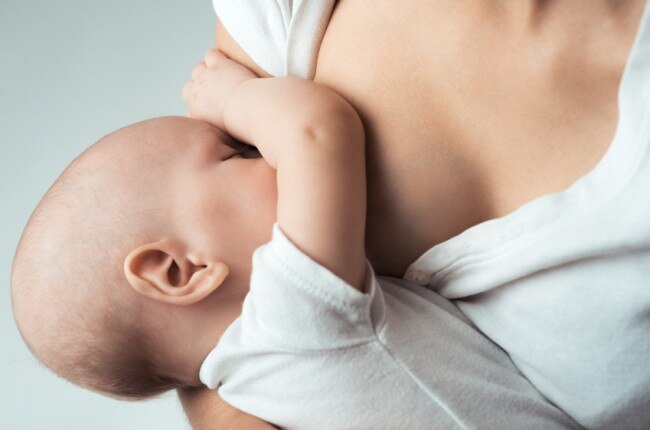August is National Breastfeeding Awareness Month. Here’s the gist of the agenda regarding nursing: Breast is best—for mom as well as baby. The mounting research makes an overwhelming case in favor of the breast, and the good news is breastfeeding rates continue to rise in the United States. According to the Centers for Disease Control and Prevention (CDC), in 2011, 79% of newborn infants started to breastfeed. Yet breastfeeding still does not continue for as long as recommended. Of infants born in 2011 in the US, 49% were breastfeeding at 6 months and only 27% at 12 months.
Part of the problem is that many communities and institutions do not support breastfeeding as a best practice. Slowly, however, the tide is turning away from a “blame the mother” mentality and moving toward the cultural collective responsibility we have to make breastfeeding acceptable. It’s become a priority both as public health issue and a substantial economic one.
According to study published in 2007 in the journal Pediatrics, the United States would save about $13 billion per year in medical costs if 90 percent of U.S. families breastfed their newborns for at least six months. There are dozens of reasons why breast is best, from convenience to less stinky diapers to free birth control. Here—just a tip of the teat—are six of our favorite reasons why it’s important to breastfeed your baby:
Higher IQ
Many studies show that breastfeeding boosts brain development. A 2013 study out of Brown University, for instance, “found that by age 2, babies who had been breastfed exclusively for at least three months had enhanced development in key parts of the brain compared to children who were fed formula exclusively or who were fed a combination of formula and breastmilk. The extra growth was most pronounced in parts of the brain associated with language, emotional function, and cognition.”
Healthier moms
According to The Surgeon General’s Call to Action to Support Breastfeeding of 2011, the risk of breast cancer is higher for women who have never breastfed. Along the same lines, the risk of ovarian cancer was found to be 27 percent higher for women who had never breastfed than for those who had breastfed for some period of time. As a rule, exclusive breastfeeding combined with longer durations of breastfeeding tend to be associated with better maternal health outcomes.
Healthier babes
It all comes down to a superior immune response. According to the CDC, babies who breastfeed have decreased incidences of illness and lower mortality rates. And the longer a baby breastfeeds, those immunity benefits improve. Formula feeding, on the other hand, is associated with increases in common childhood infections, such as diarrhea and ear infections. Breastfeeding also reduces your risk of obesity—for both mother and child. In case you still need persuading, breastfeeding lowers your baby’s risk of sudden infant death syndrome by about half.
With all the benefits that accompany the breast, it would seem like a no brainer. Still need a nudge? There are several ancillary benefits such as reduced risk of postpartum depression, a stronger bonding experience, and –perhaps the best of the lot—ultra convenience.
I personally love that breastfeeding is a renewable energy source, with no packaging waste and no transportation costs to deliver. Finally, it’s a huge money saver. A study conducted more than a decade ago estimated that families who followed optimal breastfeeding practices could save more than $1,200–$1,500 in expenditures for infant formula in the first year alone.
Even with all these bennies, employees and cultural attitudes still don’t support breastfeeding mothers. But instead of blaming the mother for not breastfeeding, think of ways your community can become more mother-friendly and support breastfeeding. If you want a concrete way to participate in National Breastfeeding Month, go to https://www.usbreastfeeding.org/NBM.

